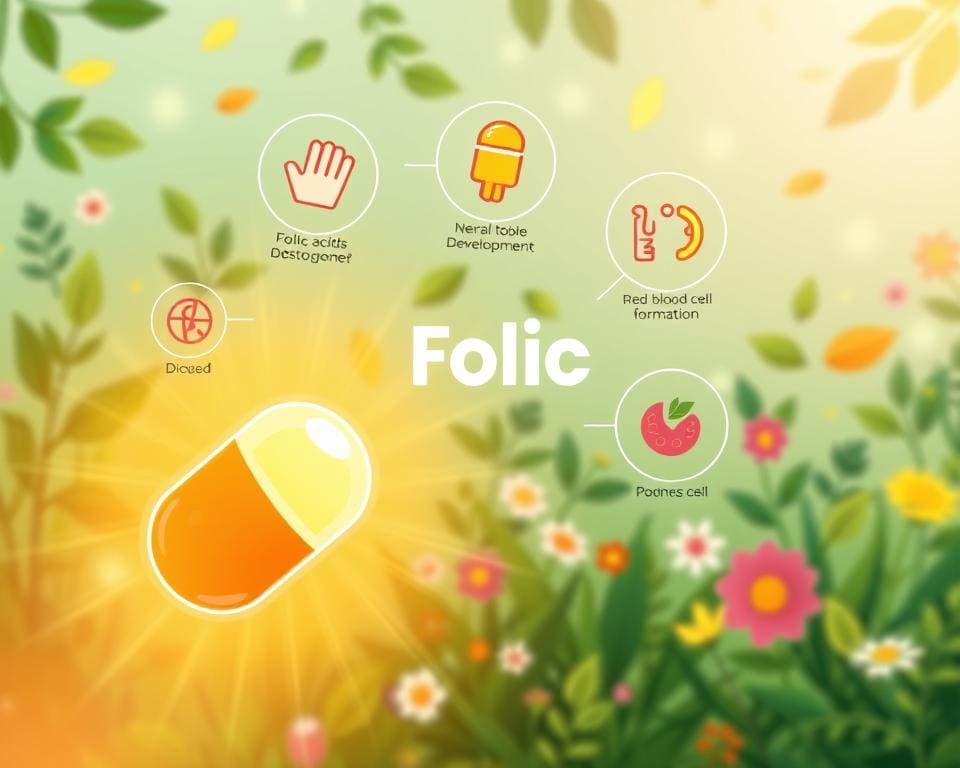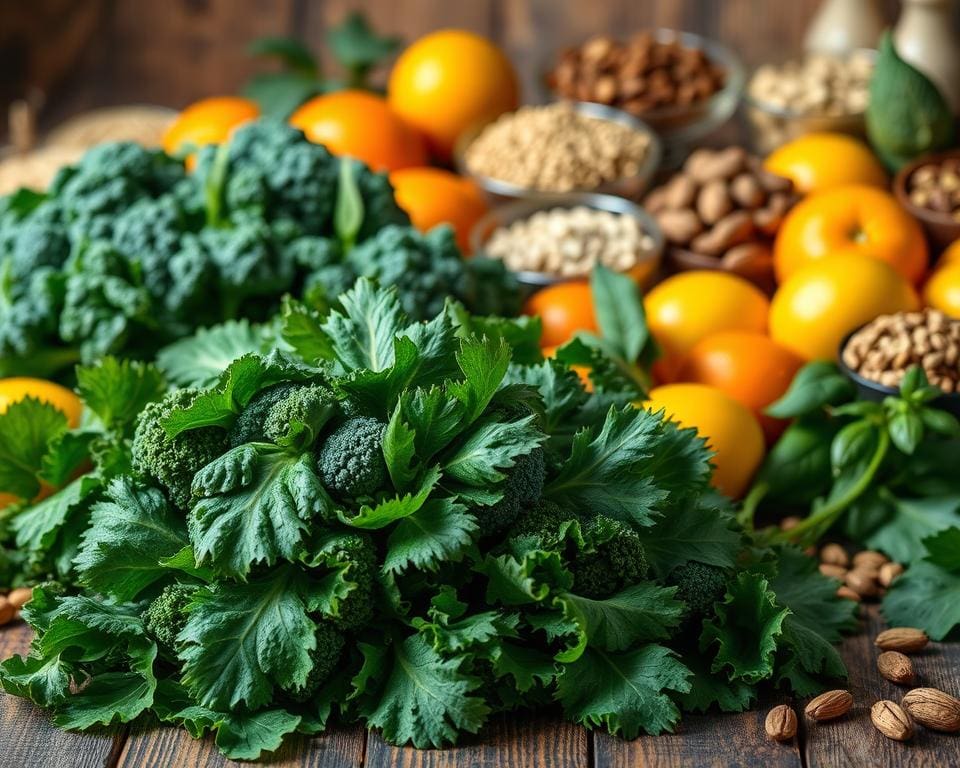Understanding the significance of folic acid, a crucial B vitamin, can profoundly impact your health. This article delves into folic acid which foods can offer the best sources of folic acid, helping to support essential bodily functions such as cell growth and metabolism. With a focus on identifying foods high in folic acid, we aim to inspire you to enrich your diet with these nutritious options. As you explore various culinary delights, you’ll learn how to integrate them seamlessly into your daily meals for optimal health benefits.
Understanding Folic Acid
Folic acid, known as Vitamin B9, plays a crucial role in maintaining health and wellness. It is a water-soluble vitamin essential for various bodily functions, particularly in the synthesis and repair of DNA. Adequate levels of folic acid support essential processes during significant growth periods such as pregnancy and infancy. Ensuring an appropriate intake can prevent several health complications.
What is Folic Acid?
This vitamin is vital for producing healthy cells and supports the body’s overall wellbeing. The most notable sources of folic acid include leafy green vegetables, legumes, and fortified cereals. These foods provide the essential nutrient that many individuals may not consume adequately. Besides its role in DNA synthesis, folic acid is known for its contribution to metabolic processes and the synthesis of neurotransmitters.
The Importance of Folic Acid in the Diet
Incorporating sufficient folic acid in food is essential for everyone, particularly pregnant individuals. Low levels of folic acid can lead to serious health issues, including anaemia and neural tube defects in developing foetuses. Regularly consuming foods rich in this vitamin not only enhances health but also supports optimal prenatal development. As awareness grows about the folic acid benefits, individuals are encouraged to consider various ways to increase their intake.

Folic Acid Which Foods
Understanding key nutritional sources of folic acid is essential for anyone looking to enhance their folic acid diet. Several foods high in folic acid can contribute significantly to your daily intake. Knowing where to find these nutrients can empower individuals to make informed dietary choices.
Key Nutritional Sources
Leafy greens such as spinach, kale, and Swiss chard are among the top folic acid rich foods. Legumes like lentils, chickpeas, and black beans also provide an excellent source of this vital nutrient. Fortified grains, including breakfast cereals and bread, can help boost folic acid levels as well. Incorporating these foods consistently can create a balanced approach to a healthful folic acid diet.
Best Practices for Cooking and Preparation
Cooking methods play a significant role in nutrient retention. Steaming or microwaving vegetables helps preserve folate levels better than boiling, which often leads to nutrient loss in water. Emphasising these cooking techniques allows for maximum retention of folic acid in meals, ensuring that the rich benefits of these foods high in folic acid are fully realised. By following best practices when preparing meals, individuals can optimise the nutritional quality of their diets.
Foods High in Folic Acid
Incorporating a variety of foods high in folic acid is essential for maintaining optimal health. Certain categories of food stand out due to their rich folate content. These foods should be staples in your diet to effectively boost your intake of this important nutrient.
Legumes and Pulses
Legumes and pulses are among the best folic acid foods available. Varieties such as lentils, chickpeas, and beans provide substantial amounts of folic acid in just one serving. Including these nutrient-dense options can significantly elevate your folate levels while also offering other health benefits.
Dark Leafy Greens
Dark leafy greens, including spinach, kale, and collard greens, are excellent sources of folic acid in food. These vibrant vegetables not only offer high folate levels but also contribute to overall wellness through their abundance of vitamins and minerals. Adding these greens to your meals is an easy way to enrich your diet.
Citrus Fruits
Citrus fruits, such as oranges and grapefruits, are not only refreshing but also valuable sources of folic acid. Their vitamin C content enhances the body’s ability to absorb folate effectively, making them a delicious choice for boosting your intake of foods high in folic acid. Including these fruits in your daily diet can promote better health.
Folic Acid Rich Foods to Incorporate
Integrating folic acid rich foods into your daily meals can enhance your overall health and well-being. A balanced folic acid diet supports vital bodily functions and contributes to optimal nutrition. Among the best folic acid foods, whole grains and nuts stand out as excellent sources.
Whole Grains and Fortified Products
Whole grains such as brown rice, quinoa, and oats are fantastic inclusions in a nutritious diet. These grains offer not only dietary fibre but also substantial folate content, aiding in maintaining energy levels and promoting digestion. Choosing fortified cereals and bread can significantly increase folate intake, making them a practical choice. For those with limited access to whole foods, these fortified options remain critical in achieving desired folic acid levels.
Nuts and Seeds
Nuts and seeds represent another group of folic acid rich foods. Sunflower seeds and almonds are particularly noteworthy for their high folate content, making them simple additions to snacks and meals. Incorporating these into your diet can be delightful, whether as a crunchy topping on salads or a quick on-the-go snack. Their versatility and nutritional benefits make them some of the best folic acid foods you can easily enjoy daily.
The Benefits of Folic Acid
Exploring folic acid reveals a world of health advantages that extend far beyond just a single nutrient. Many studies highlight the folic acid benefits ranging from enhancing energy levels to bolstering cognitive function. This vital B vitamin is key in supporting cell division, which is crucial for overall bodily health.
Improving Overall Health
A diet rich in sources of folic acid can lead to significant improvements in both physical and mental well-being. Regular consumption of folate-rich foods may help in the prevention of certain chronic diseases, such as heart disease. Furthermore, adequate levels of folic acid are linked to mental clarity and improved mood, underscoring the importance of including necessary sources of folic acid in everyday meals.
Folic Acid in Pregnancy
For women expecting or planning to conceive, the role of folic acid becomes even more paramount. Adequate intake during pregnancy contributes to the healthy development of the baby, significantly reducing the risk of neural tube defects. Health professionals strongly recommend women incorporate folic acid supplements alongside a diet rich in folate for optimum health outcomes during this critical period.
Folic Acid Deficiency Symptoms
Understanding the potential folic acid deficiency symptoms is crucial for maintaining optimal health. Many people may not recognise these signs until they become severe. Awareness can foster proactive management and informed dietary choices. Symptoms of deficiency often start with fatigue, persistent weakness, and irritability, which can much later progress to more serious health issues.
Identifying Deficiency Signs
Recognising the indicators of folic acid deficiency allows individuals to take necessary action. Common signs include:
- Fatigue
- Weakness
- Irritability
- Pale skin or anaemia
- Neurological disorders
These symptoms may stem from inadequate sources of folic acid, highlighting the importance of a balanced diet rich in nutrients.
Who is at Risk for Deficiency?
Certain populations face a higher risk of folic acid deficiency. Identifying these groups helps in the prevention of associated health complications. They include:
- Pregnant women
- Individuals with gastrointestinal disorders
- People on restrictive diets
Regular monitoring of dietary intake is essential for these at-risk groups. Enhancing nutrient consumption can mitigate the likelihood of developing deficiency symptoms.
Folic Acid Supplements
Incorporating folic acid supplements into your health routine may be beneficial, particularly for individuals who have increased nutritional needs. Pregnant women and those facing certain health conditions often require additional folic acid to support both their well-being and that of their developing children. A well-planned folic acid diet is crucial, but supplements can fill any nutritional gaps when necessary.
When to Consider Supplements
There are specific situations where folic acid supplements become vital. Pregnant women are advised to take these supplements to prevent neural tube defects in their babies. Additionally, individuals with conditions such as coeliac disease or those who have undergone bariatric surgery may experience malabsorption of nutrients. In these cases, consultations with healthcare professionals can provide guidance on whether to include folic acid supplements.
Choosing the Best Supplement Options
When selecting folic acid supplements, it’s essential to opt for high-quality products that meet personal health requirements. Look for reputable brands that offer adequate dosages and are free from artificial additives. Reading labels well and understanding active ingredients can significantly enhance the effectiveness of the supplements in conjunction with your folic acid diet. Consulting a healthcare professional ensures you choose the right option tailored to your specific needs.
Creating a Folic Acid Diet Plan
Incorporating a folic acid diet into daily meal planning can significantly enhance overall health and well-being. A diverse range of folic acid rich foods should be included every day to ensure adequate intake. Focus on integrating sources such as legumes, dark leafy greens, and whole grains into your meals, as these are among the best folic acid foods available and provide a wealth of other essential nutrients.
Consistent meal preparation plays a vital role in maintaining a balanced diet. Stocking your kitchen with folate-rich options—from fortified cereals to an array of fresh fruits and vegetables—will create a sustainable approach to boosting folic acid consumption. Preparing nutritious snacks, such as almonds or citrus fruits, further supports your dietary goals, making it easier to add these important nutrients throughout the day.
Ultimately, a gradual and mindful introduction of folic acid rich foods can lead to lasting changes in your eating habits. By making a commitment to include these foods in your everyday meals, you set yourself on a path to enhanced health and vitality. Embrace the variety and flavour of these nutrient-dense options, and you’ll find that building a fulfilling folic acid diet can be both enjoyable and beneficial.









